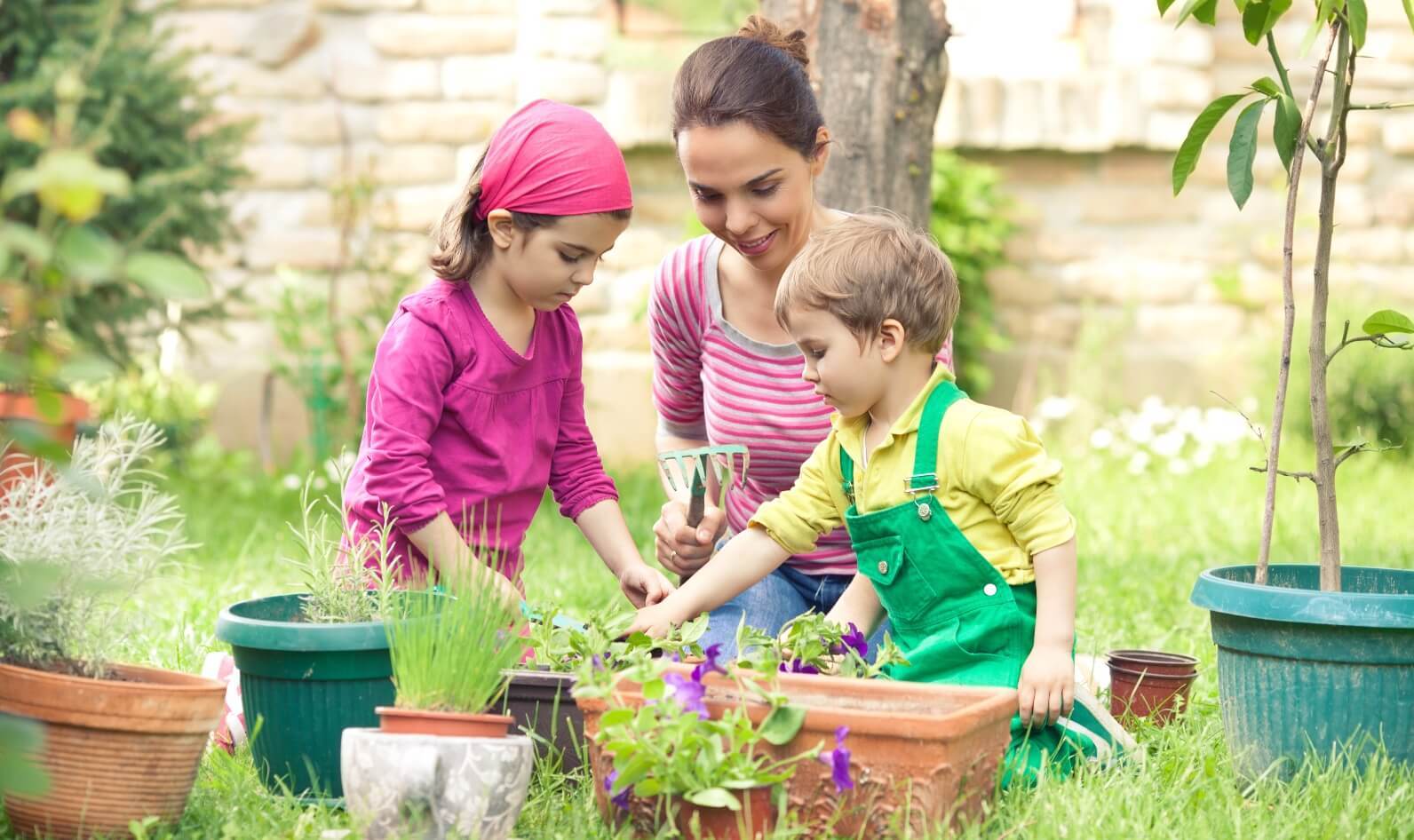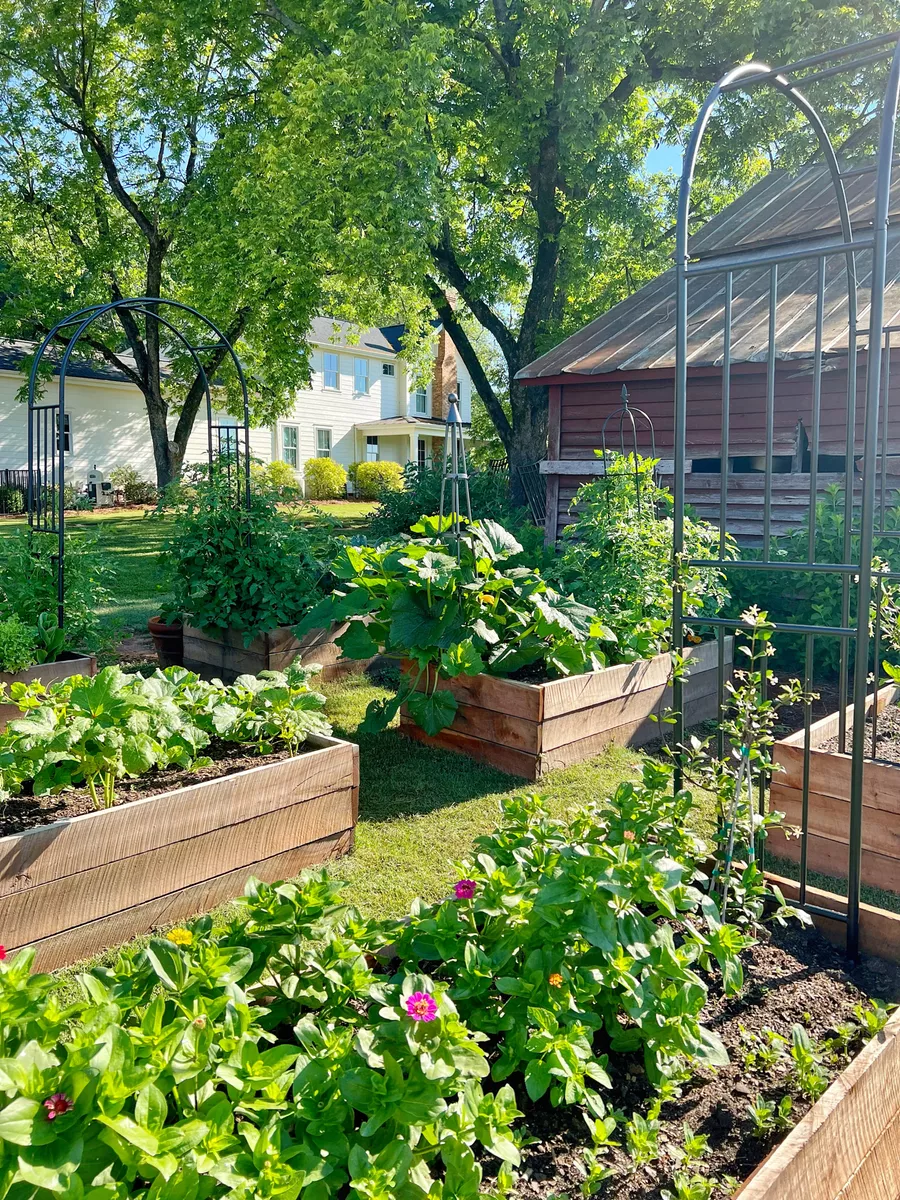Seasonal Gardening Tips: What to Plant and When for Ideal Results
Seasonal Gardening Tips: What to Plant and When for Ideal Results
Blog Article
Recognizing the Different Kinds of Gardening and Exactly How They Add to a Much Healthier Lifestyle and Setting

Advantages of Veggie Horticulture
Numerous individuals are significantly acknowledging the myriad advantages of vegetable gardening as a crucial part of a healthier lifestyle. Participating in vegetable gardening uses countless physical wellness benefits, consisting of increased physical task, which boosts cardio wellness and advertises total fitness. The act of planting, weeding, and harvesting requires activity and can aid combat sedentary actions, contributing to weight management and boosted muscular tissue tone.
Moreover, growing one's very own veggies substantially improves dietary quality. Native produce is frequently fresher and more nutrient-dense contrasted to store-bought alternatives, as it can be consumed soon after harvest. This availability urges a better intake of fruits and vegetables, which are vital for avoiding chronic illness.
In addition, veggie gardening cultivates psychological wellness by providing a restorative electrical outlet for anxiety relief and leisure. The act of often tending to plants can be reflective, allowing people to get in touch with nature and run away the pressures of life. In addition, the lasting technique of expanding one's very own food lowers dependence on industrial agriculture, adding to ecological preservation and promoting biodiversity. Jointly, these benefits emphasize the value of vegetable horticulture as a keystone of a healthier way of living.
Discovering Flower Horticulture

Along with aesthetic benefits, blossom horticulture supports local communities. Numerous flowering plants bring in pollinators, such as and butterflies, which are crucial for maintaining biodiversity. The existence of varied flora can also improve soil health and wellness, as numerous plants add to vitamins and mineral cycling and enhance soil structure.
Furthermore, blossoms can play a considerable duty in promoting sustainable techniques. Numerous gardeners choose for indigenous or drought-resistant species, which need less water and very little chemical inputs. This method not just profits the setting however additionally urges liable horticulture routines.
Inevitably, blossom horticulture acts as an important component of a holistic gardening approach. Gardening. By growing beauty and sustaining neighborhood ecosystems, it harmonizes with veggie horticulture and highlights the significance of nurturing both our physical and mental health via nature
Container Gardening Advantages
Container gardening offers countless advantages that make it an appealing option for both amateur and skilled gardeners. Among the key advantages is its adaptability; containers can be positioned on outdoor patios, terraces, or perhaps inside your home, allowing for gardening in spaces with minimal ground gain access to. This flexibility my site makes it possible for people in city environments or those with tiny lawns to cultivate plants properly.
Furthermore, container gardening gives boosted control over dirt quality and dampness levels. Garden enthusiasts can choose specific dirt mixes to maximize plant health and wellness and reduce issues like weeds and parasites. The flexibility of containers additionally permits very easy relocation to make best use of sunlight direct exposure or protect plants from inclement weather condition.
Furthermore, container yards can be aesthetically pleasing, using a possibility for imagination in style. Gardening. They can act as attractive elements that improve exterior or indoor areas while advertising biodiversity by bring in pollinators
Lastly, container horticulture can add to a healthier way of life by urging exercise, as it typically involves lifting, growing, and keeping plants. Overall, the advantages of container horticulture make it an easily accessible and gratifying method for those looking for to improve their lifestyle and atmosphere.
The Increase of Upright Horticulture
As metropolitan areas come to be significantly crowded, the pattern of upright gardening has taken off, allowing individuals to maximize their gardening possibility in restricted areas. This ingenious technique involves growing plants in upright structures, such as wall-mounted planters, trellises, or specialized vertical garden systems. The appeal of vertical gardening lies not just in its reliable usage of room but additionally in its visual contribution to metropolitan settings, changing bare walls right into rich environment-friendly landscapes.
Upright gardens can be installed in homes, porches, and neighborhood rooms, providing a system for expanding a selection of plants, including natural herbs, vegetables, and ornamental flowers. This approach motivates biodiversity and can boost air top article top quality by filtering system contaminants while advertising a connection to nature in largely booming areas. Furthermore, vertical gardening supplies useful advantages, such as boosted yield per square foot, making it an eye-catching alternative for urban gardeners looking for to grow their own food.

Lasting Practices in Horticulture
Welcoming sustainable techniques in horticulture is important for advertising environmental health and wellness and making sure the practicality of our natural deposits. Sustainable horticulture methods concentrate on minimizing environmental effect, preserving water, and promoting biodiversity. By implementing methods such as organic horticulture, gardeners can decrease the use of artificial fertilizers and chemicals, which can harm neighborhood communities.
Buddy planting is another effective lasting technique, where particular plants are grown together to enhance growth and hinder bugs normally. Additionally, utilizing native plants in landscape design supports neighborhood wildlife and calls for less maintenance, as they are naturally adjusted to the neighborhood climate and dirt conditions.
Water conservation methods, such as rainwater harvesting and drip irrigation, help to successfully handle water sources, thus lowering waste. Furthermore, composting organic waste not only enriches the dirt but additionally lowers land fill payments, advertising a circular economy.
Finally, practicing crop rotation and cover chopping boosts soil wellness and minimizes the threat of bug invasions. By integrating these lasting methods, garden enthusiasts can create durable communities that add to a healthier way of life while safeguarding the environment for future generations.
Conclusion

Finally, the varied methods of horticulture, consisting of vegetable, flower, container, and upright gardening, collectively promote a healthier way of life this and boost ecological sustainability. Each type uses distinctive advantages, from giving fresh fruit and vegetables and attracting pollinators to maximizing minimal areas and motivating biodiversity. By cultivating lasting practices, these horticulture approaches not only add to specific health yet also support broader ecological preservation initiatives, eventually reducing dependence on industrial agriculture and improving area strength.
Report this page